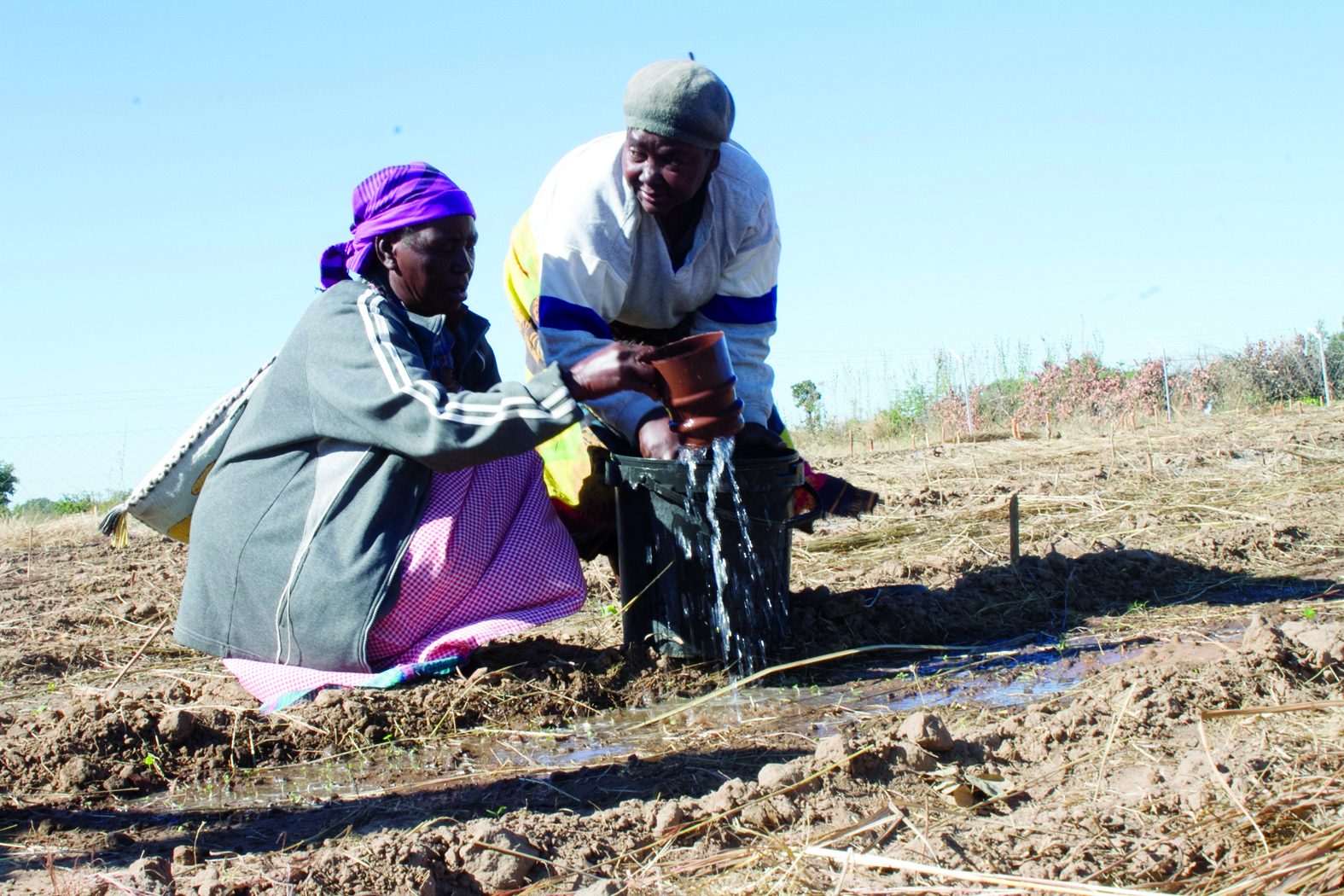
GOKWE NORTH — The weather patterns here — particularly the blazing sun — can be unforgiving, but locals appear to have made peace with them through acclimatization.
BY PHILLIP CHIDAVAENZI
But the hunger that stalks the dry land like an avenging spirit is not easily appeased, unless there is some form of divine intervention.
Chakazamba Village head, Mutatari Chakazamba, recalled the many bleak years through which villagers had to contend with the effects of hunger while scavenging for water.
Although the nearby Chiwashira dam, which serviced both humans and livestock, was built in 1984, its collapse in 1991 marked the beginning of many long years of water crisis. Chakazamba told NewsDay that villagers had to turn to unreliable streams for succour — and many also quickly dried up.
The repercussions of the water crisis were so huge and villagers could not afford to rear livestock — especially cattle — due to the unavailability of water.
“After the dam collapsed because it was not properly built, we had to use water from small streams and we could not rear cattle,” Chakazamba said.
The villagers here are witnesses to the moving of the divine hand of providence through Caritas Gokwe — a member of Caritas Internationalis (CI), a worldwide federation of the Catholic Church relief and development organisations — which is implementing several empowerment projects in Gokwe.
- Chamisa under fire over US$120K donation
- Mavhunga puts DeMbare into Chibuku quarterfinals
- Pension funds bet on Cabora Bassa oilfields
- Councils defy govt fire tender directive
Keep Reading
Caritas Gokwe has been working in partnership with the Catholic Agency for Overseas Development (CAFOD), which provided funding.
Caritas’ agriculture and food security programmes have over the years improved rural families’ livelihoods while increasing their incomes through initiatives such as setting up community gardens, supplying seeds and equipment, and improving adaptation techniques to increase food crop yields.
Another villager Dadirai Shambahuma recalled the years of hardship characterised by acute hunger as the maize crop did not flourish in the region, leaving villagers at their wits’ end, with too little options.
“Although we have always grown maize, it was just too little and by July of every year, there would be virtually nothing,” she said.
The rehabilitation of the dam, according to Martha Dube, has provided villagers with a variety of options. Now they can grow a variety of vegetables including sweet cabbage, spinach, tomatoes, onions and carrots.
“These are purely for consumption,” Dube said, “although we sell the little surplus for additional income.”
Following the dam’s rehabilitation, Headman Chakazamba said they pleaded with Caritas to help them establish a gardening project, as not many here have maize fields.
His only worry was that the three gardens, which are expected to cater for a catchment area of about 1 000 people, were too few.
“We are grateful for the dam and the gardens, but it would be good if we can get more land so that we can increase their capacity and help a lot more people,” he said.
Amos Madyagwai, a headman of the nearby Madyagwai Village, also expressed hope that the dam, which currently services 54 villages, could be expanded.
“We are using the water from the dam for consumption and watering our livestock and gardens,” he said.
“But people doing construction projects in Gokwe are also drawing a lot of water from the dam and we fear it might be quickly exhausted.”
He said the fishing project initiated two years after the dam’s reconstruction had also enhanced their food supply, although they have to deal with the problem of fish mongers.
“There have been incidences of poaching, especially at night,” he said. “These poachers use nets and our fear is that given that the dam is a bit small, the fish will be quickly exhausted.”
At the initiation of the fishing project, villagers were encouraged to use fishing rods to help preserve the fish population.
According to Caritas, their work included facilitating improved access to water, sanitation and hygiene in the country’s marginalised areas.
Caritas Gokwe programmes officer, Siza Ncube, told NewsDay that the gardening project at Chakazamba village was bankrolled to the tune of $6, 000 following an application for assistance made by the villagers.
“Together in partnership with Cafod, which is the funding partner, we provided seed, materials as well as training while the villagers came in with their own inputs and provided the land,” she said.
Caritas works with communities experiencing poverty and hunger — among other problems —regardless of their religious, political or cultural beliefs.
It has provided a beacon of hope millions of women, men and children in times of hardship while contributing to the development of social justice and working with communities to bring about positive change in some of the country’s poorest outposts.
Their expanded programme also includes water and sanitation projects that have increased access to clean water and hygiene practices to an average of 70 percent of the community while ensuring secure, safe and healthy living conditions for families.











